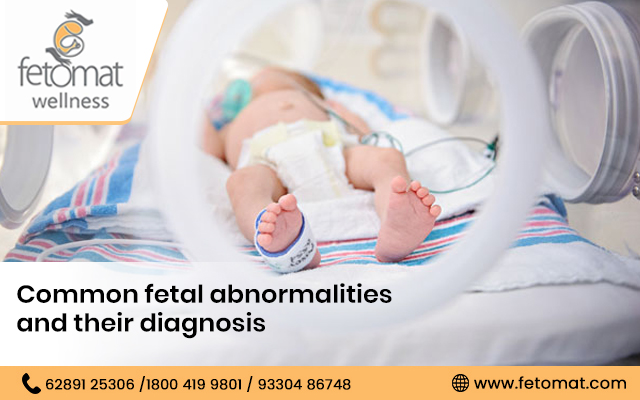Pregnancy is an exciting journey for all couples but it can also become a period of uncertainty and worry. Fetal abnormalities are a concern for many parents-to-be as they can affect the health and development of the fetus. It is important to know the common fetal abnormalities that can occur during pregnancy. Early detection and monitoring can help manage such abnormalities and ensure the best possible outcome for the pregnancy, says a well-known fetal and maternal medicine specialist in Kolkata.
What are fetal abnormalities?
Fetal abnormalities are structural or functional abnormalities that occur in a developing fetus during pregnancy. These abnormalities can affect the fetus’s growth, development and their overall health.
Experts of a maternal and fetal medicine centre in Kolkata stated that congenital abnormalities can be caused by genetic factors (chromosomal or single gene defects), environmental factors and also socioeconomic conditions. They may affect any part of the unborn child, including the brain, heart, lungs and limbs.
According to the World Health Organization (WHO), every year an estimated 240,000 newborns die within 28 days of birth due to congenital disorders. In addition, it is responsible for 170,000 deaths of children aged between 1 month and 5 years.
What are some common fetal abnormalities in an unborn child?
Some of the most common congenital disorders are:
Down Syndrome: This is a genetic disorder caused by the presence of an extra chromosome. It can lead to intellectual disability and delayed development in the baby.
Neural Tube Defects: These birth defects occur when the neural tube fails to close properly during the early stages of fetal development. Examples of neural tube defects include spina bifid, anencephaly and encephalocele.
Congenital Heart Defects: These conditions are structural problems that occur in the heart during fetal development. Common congenital heart defects are atrial septal and ventricular septal defects.
Cleft Lip and Palate: This is a facial abnormality that occurs when the lip and palate do not form properly during fetal development. It can lead to feeding problems, speech difficulties and other issues.
Prenatal testing is recommended for all pregnant women to diagnose congenital abnormalities in their unborn child, suggested an expert of a maternal and fetal medicine centre in Kolkata.
Diagnosis of congenital abnormalities
Incidence of major fetal abnormalities involve 4-6 % of all pregnancies. Some of them may not be compatible with life and may need termination. Some may be associated with potential physical and mental handicapped and may not be continued. But for some, if it is diagnosed before birth is completely curable and result in normal life after birth.
Diagnosis of congenital abnormalities is done through various prenatal screening and diagnostic tests. These tests can help identify potential problems with the developing fetus and allow for appropriate medical management and care.
Some of the common tests that fetal and maternal medicine specialist conducts are as follows:
Ultrasound: This is a non-invasive imaging test that involves the use of sound waves to create images of the developing fetus. It can help detect structural abnormalities and monitor fetal growth and development.
Chorionic Villus Sampling (CVS): This is an invasive diagnostic test that involves taking a small sample of placental tissue to test for genetic or chromosomal abnormalities.
Amniocentesis: This is an invasive diagnostic test that involves taking a sample of amniotic fluid to test for birth defects.
Conclusion
The decision to undergo prenatal testing should be made based on a woman’s individual circumstances and should be discussed with a fetal and maternal medicine specialist.
Patient Review
“Good care. Services are really good. Must recommended place for critical pregnancy.”
Mousumi Roy

